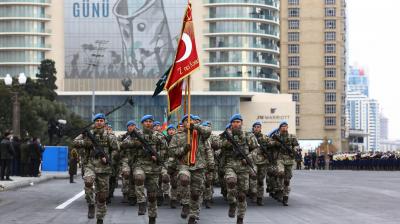A new formula for collaboration: Turkey, the EU & North Africa
Over recent years, relations between Turkey and the European Union (EU) have been difficult and driven more by crisis management rather than equal partnership. Yet, despite this downward spiral, both blocs remain key partners on domains such as trade, migration and counterterrorism and repeatedly express their interest in developing a more cooperative and constructive relationship. This report is a product of the ‘Searching for a New Formula for collaboration between Turkey and the EU in/with North Africa’ project, which investigated the extent to which Turkey and the EU could collaborate in and with North Africa, more specifically, Morocco, Egypt and Algeria. North Africa was chosen because it offers an underexplored area of research for Turkey-EU relations; Morocco, Egypt and Algeria were selected for specific study as they are the countries with which both Turkey and the EU have the highest trade volumes in the region. Moreover, there are currently no joint projects between Turkey and the EU in Morocco, Algeria or Egypt, although the region is an area of strategic importance for both Turkey and the EU. The recent war in Ukraine has also increased the value of North Africa as a provider of agricultural products and gas for the region. Libya and Tunisia were excluded from the research to narrow the scope of the project.
To avoid the traps of reproducing ‘neo-colonial’ or ‘neo-Ottoman’ discourses and of following a top-down approach, this study used action research as a democratic, participatory and collaborative research methodology. It engaged diverse participants from Turkey, the EU and North Africa in semi-structured in-depth interviews, conferences and a survey. Through a cyclical process, the study devised a tripartite collaborative model and concrete project ideas under five major policy options in which cooperation between Turkey, the EU, Morocco, Algeria and Egypt could be actionable.
This report gives a detailed account of the abovementioned tripartite collaborative model and the subsequent project ideas which were designed to be mutually beneficial for all three blocs –Turkey, the EU and North Africa. It should, nevertheless, be mentioned that current geopolitical uncertainties in the wider region could challenge the implementation of these projects. The civil war in Libya, the political tension between Turkey and Egypt or Morocco and Algeria, and the influence of China and Russia in the region could pose potential risks for collaboration. However, we maintain that such uncertainties make it even more timely to seek opportunities for a future collaborative environment in the Mediterranean as, ‘if the Mediterranean is weak, all Mediterranean countries are weak’.







